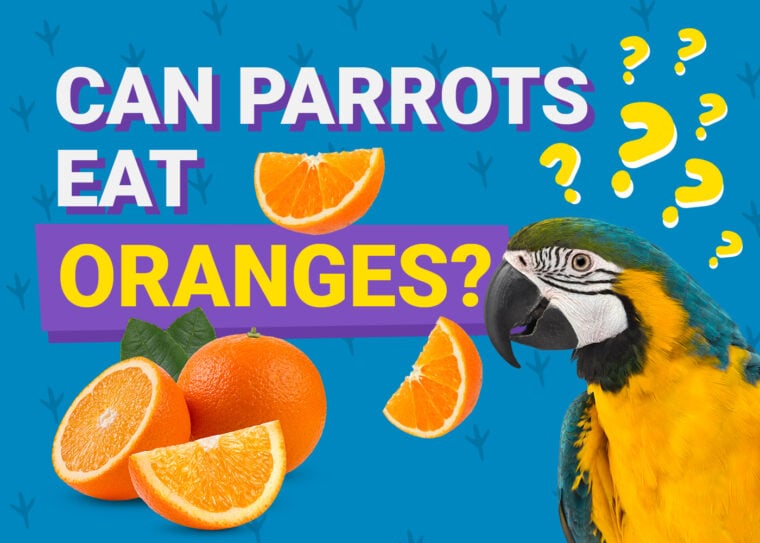
Being a first-time bird owner isn’t as easy as it looks. One of the most important parts of owning a parrot is knowing which fruits are safe for them to eat. You’d assume that because many of them come from tropical climates, they can eat all fruits, but that isn’t the case. When it comes to oranges, are they safe for parrots to eat?
Yes, parrots can eat oranges. However, they are highly acidic and should only be given to them in moderation. Even though they may be safe to eat, let’s dive deeper into the details.
Benefits of Giving Oranges to Parrots
Like most parrots’ diet, there is a balance to everything, and too much of one food could cause health problems. Oranges are a rich source of vitamins A, B, and C. They also have loads of potassium and dietary fiber. Parrots love these tasty fruits, but you don’t want to give them oranges daily because they have so much sugar and acid.
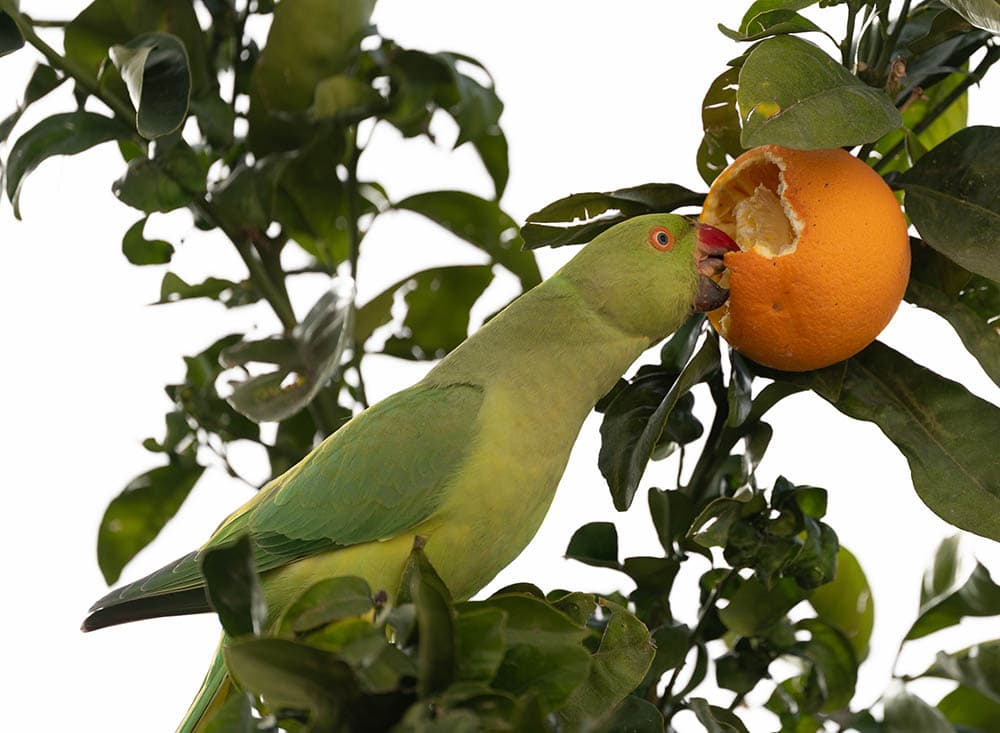
Vitamin A
Vitamin A is one of the main vitamins that aid in development. Lacking this vitamin could cause poor development or respiratory infections. A healthy amount ensures that their bones stay strong and their body stays working properly.
Vitamin B
Vitamin B is ideal if you want to keep your parrot’s mental health regulated. This vitamin is a natural antidepressant, and low levels of it could mean that your bird will start having many mood swings. It also aids in the creation of red blood cells.
Vitamin C
Vitamin C is one of the most crucial aspects of a parrot’s diet. This vitamin keeps blood circulating properly, boosts their immune system, preserves all their vital organs, and assists with healing over all parts of the body.
Can Parrots Eat Orange Peels?
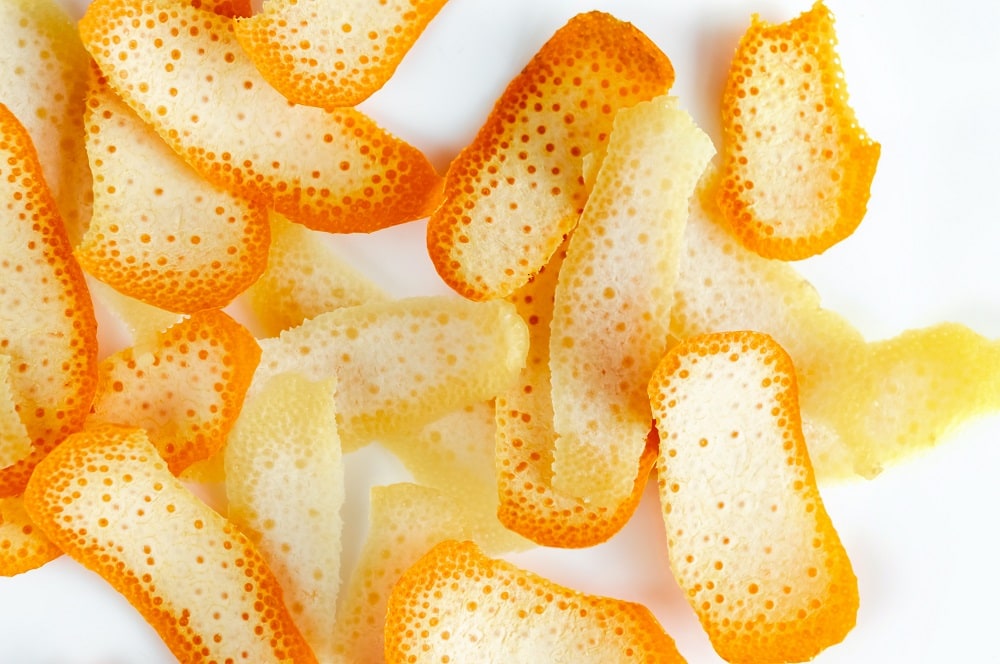
We know that the inner flesh is safe for our pet birds, but what about the outer peel? The great thing about oranges is that you can give them a slice without having to take the peel off. Birds are equipped with sharp talons and beaks and have taught themselves how to peel fruit if they want to. Some parrots prefer to eat the outer skin, and others don’t. Either way, make sure you wash it before handing it over to remove any lingering dirt or pesticides.
What About Orange Juice?
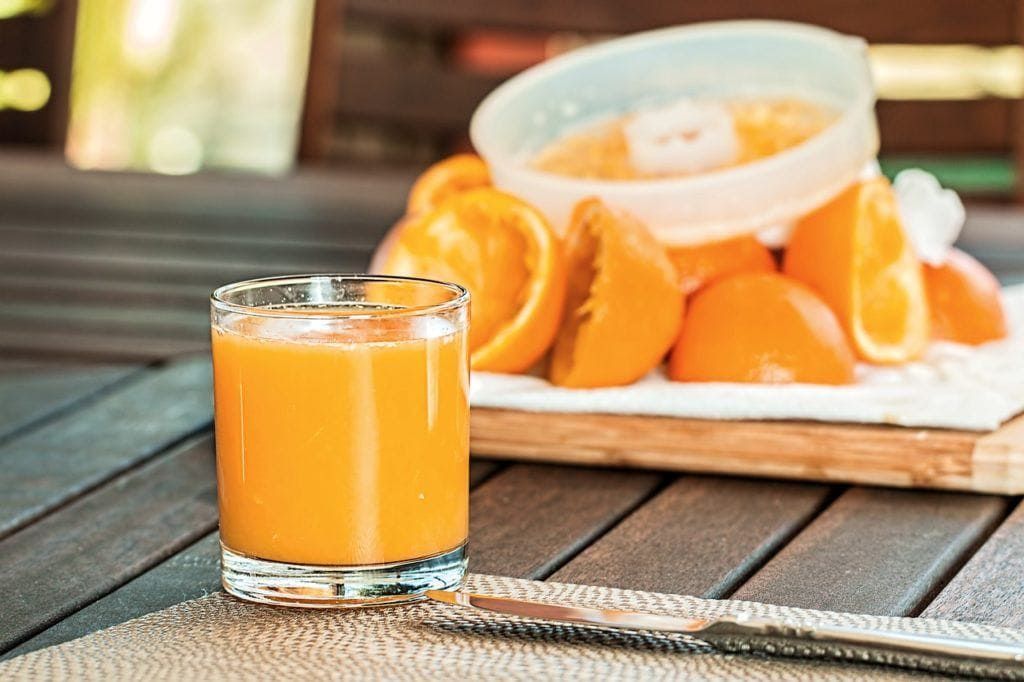
Freshly squeezed orange juice is okay to give to parrots but refrain from giving them the stuff that comes from the grocery store. This type of juice often contains added sugar and other ingredients that aren’t great for them. To cut through the sugar content of your homemade orange juice, dilute it with a bit of water. Again, only give it to them in small portions.
How to Serve Oranges to a Parrot
We encourage adding some oranges to your parrot’s food rotation. Serve them either sliced, juiced, or dried. Just remember that there are a few precautions you should take before serving this fruit.
How Often to Serve Oranges?
Instead of giving them oranges every day, try to think of an orange slice as a treat. Give them one slice about two times a week for some extra nutrition that is full of flavor.
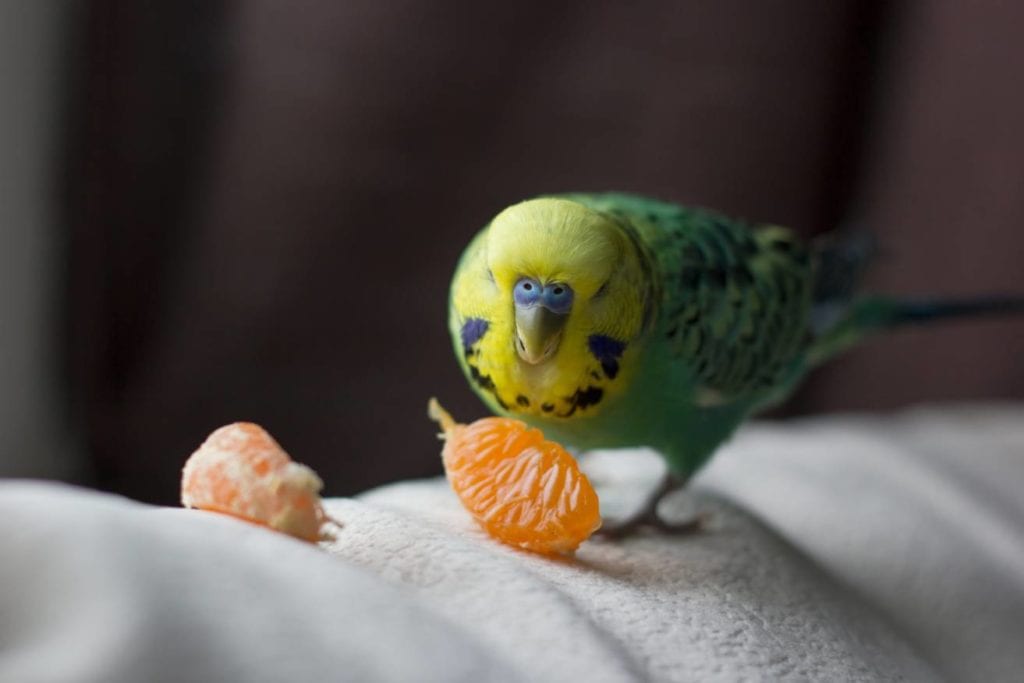
Cleaning Fruits
Seeing a moldy fruit served to you is a major turn-off. If you wouldn’t eat it yourself, why would you give it to your pets? Always check the fruits that you serve to your parrots to make sure they are free from mold and dirt. Rinse them under cold running water before peeling or cutting into them. Washing your produce gets rid of traces of pesticides that could severely harm your bird.
About Dried Oranges
A lot of dried fruits have high levels of sulfur dioxide because it works as a preservative. Sulfur dioxide could have some adverse side effects if given to your parrot. Only serve dried fruits that are sulfur-free or that you have dehydrated yourself.
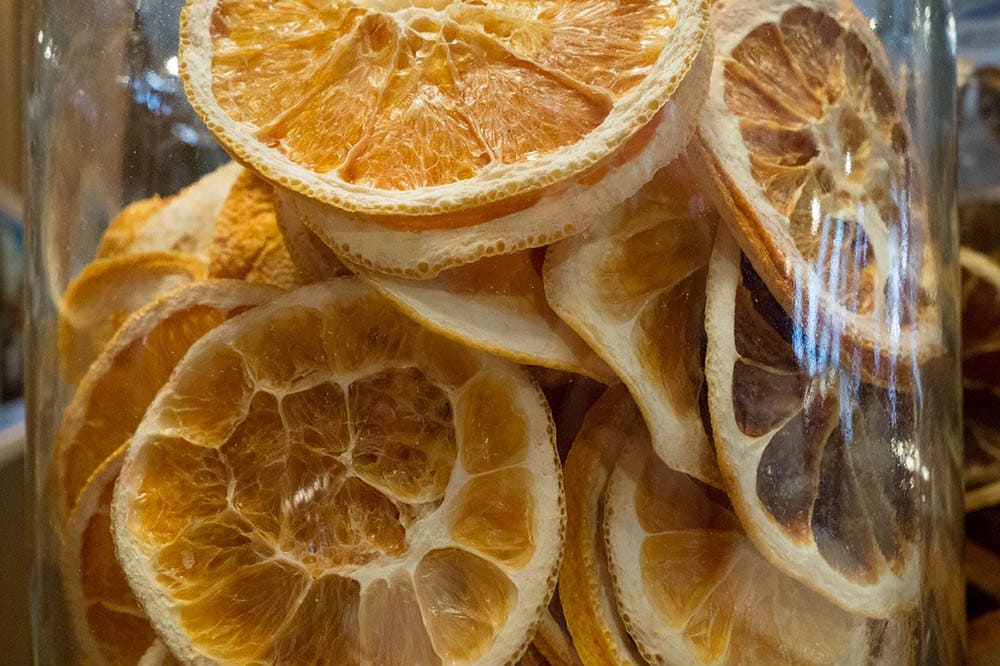
The Danger of Too Many Oranges
Parrots are relatively sensitive when it comes to their diet. Even the slightest imbalance could cause many horrific results. Eating too many oranges can cause some health concerns, and it is usually from the high acidity levels or improperly washed fruits.
High Acidity
Too much acidity in a parrot’s body means that they can’t balance out their natural pH levels. The higher the pH, the less likely the body is to absorb essential nutrients. It also neutralizes their stomach acids.
Pesticides
If you know anything about pesticides, they are silent bird killers. Fresh oranges are contaminated with many pesticides, and overexposure is a serious threat to the bird’s life. Therefore, washing all fruits is vital before serving them. Go for organic produce if possible.
Fiber
Fiber is another issue that could come from eating too many oranges. High fiber levels could give you parrot cramps or diarrhea, which isn’t fun for you to handle either.
Conclusion
Although parrots can safely eat oranges, you want to make sure that you give everything in moderation and are only feeding them clean fruit. Pay special attention to all foods that you give your parrots. These birds are highly sensitive animals and food plays a major role in their well-being.
Next on your reading list:
Featured Image Credit: Pixabay








